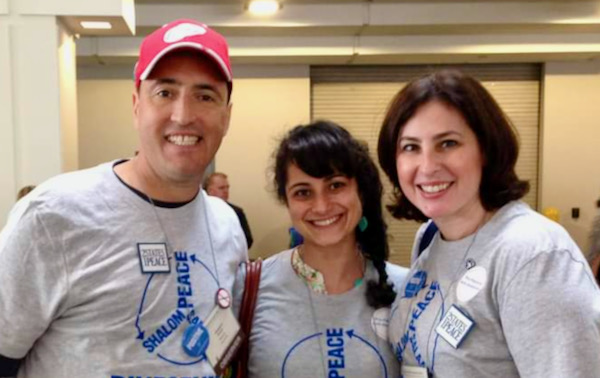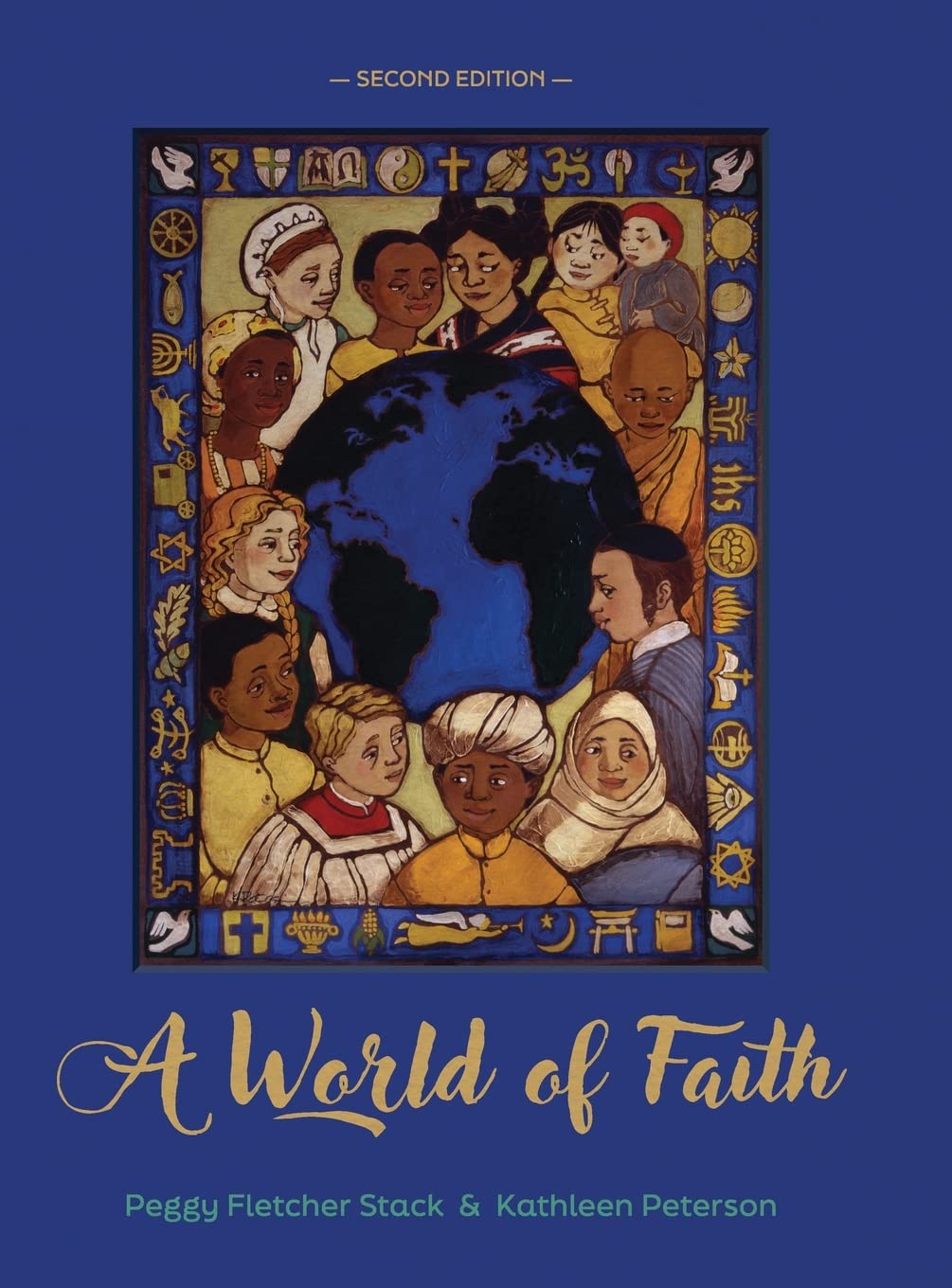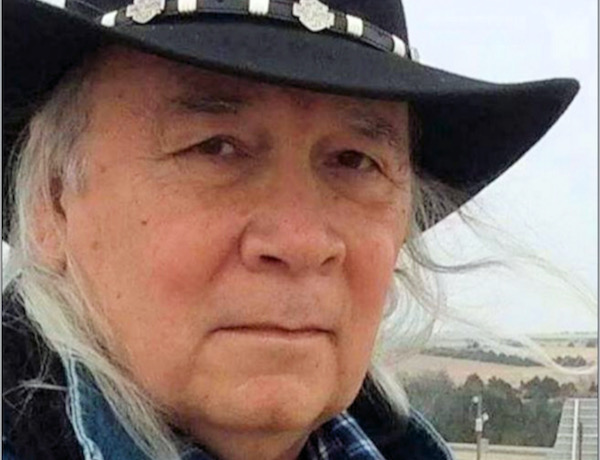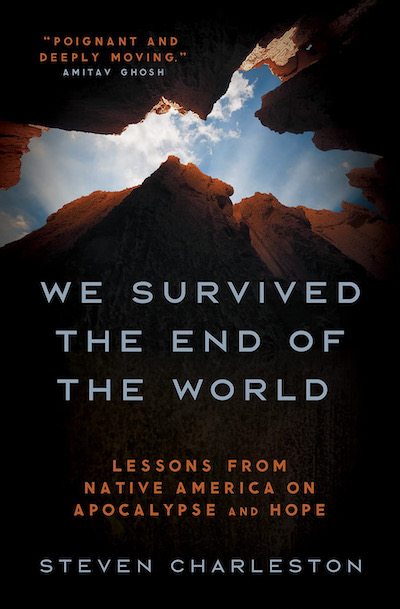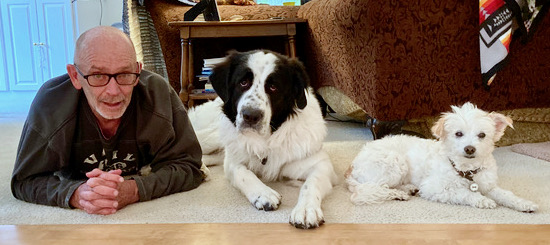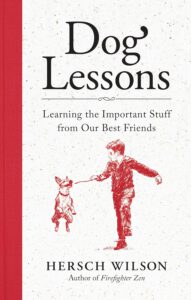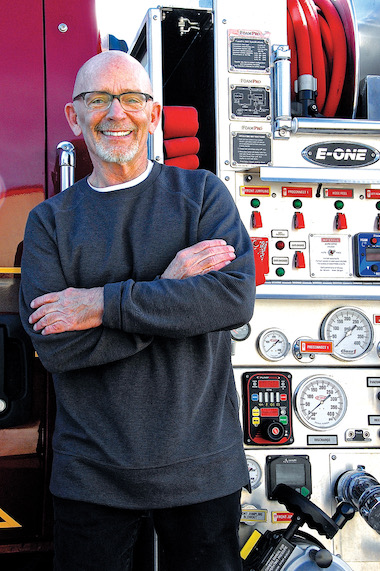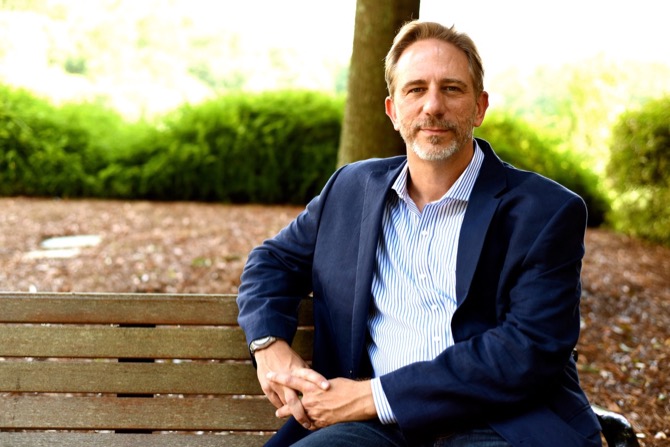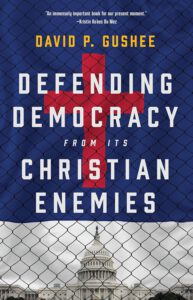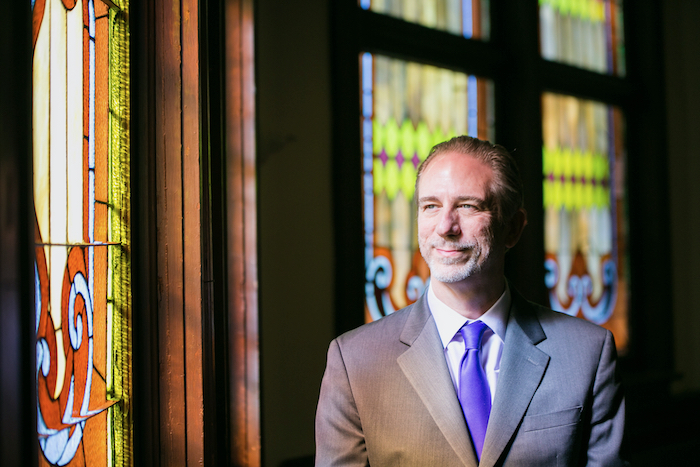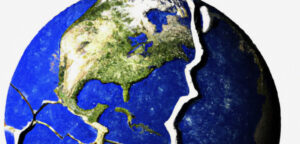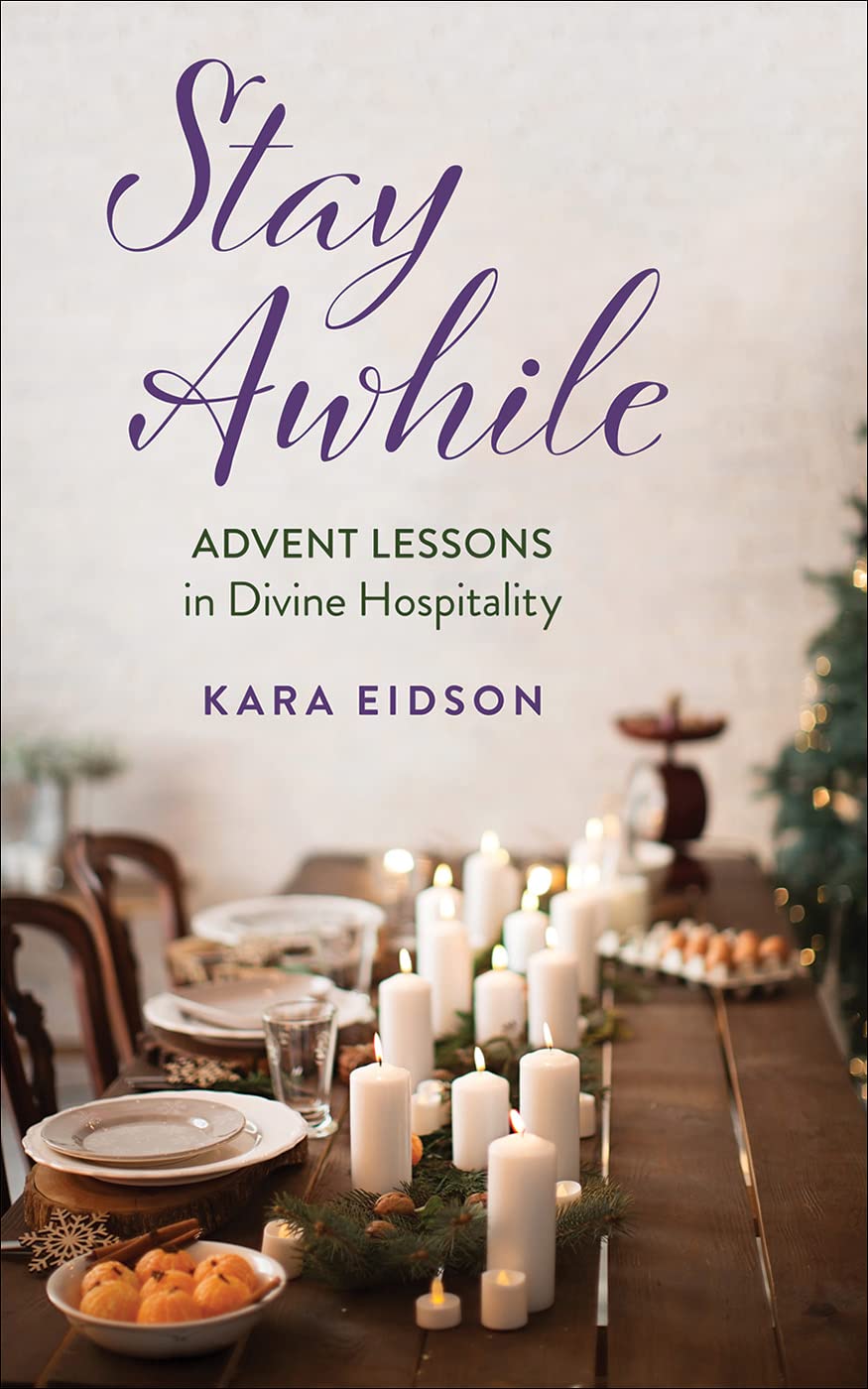
Click on the cover to visit the book’s Amazon page. You can get the paperback within a matter of days from Amazon or other online retailers—or you can begin reading the Kindle version within minutes.
How will your family celebrate this season?
Consider a Commitment to the Christian Value of Hospitality
By DAVID CRUMM
Editor of ReadTheSpirit magazine
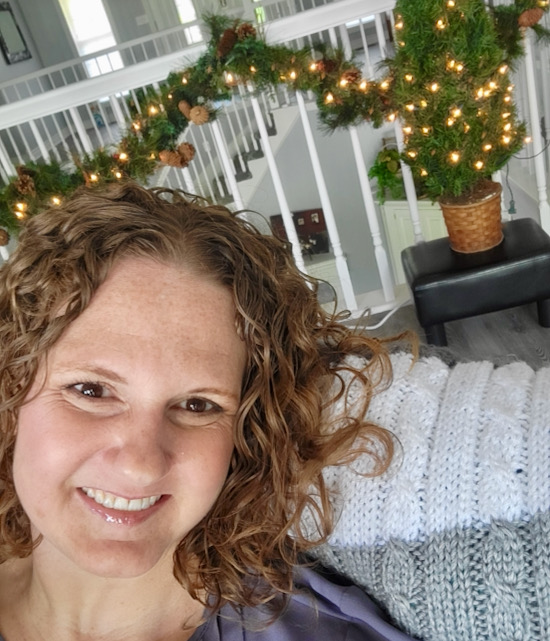
Kara Eidson. This photo is from her video series that accompanies her new book, Stay Awhile, and is used with permission.
When I scheduled an interview with author Kara Eidson along with my daughter, the Rev. Megan Walther, a United Methodist pastor in Michigan—none of us could imagine what would erupt a few days later. We knew that the FBI was reporting religious and ethnic hate crimes at an all-time high across the U.S., but we had no idea that a horrific war would break out in the Middle East, driving hate crimes to even higher levels across the U.S.
Since then, our writers and authors have been working overtime trying to helpfully respond to the painful and often dangerous tensions in our communities, universities and workplaces. One example is this recent story by Howard Brown. Our many Jewish writers and readers already are talking about how their traditionally minor festival of Hanukkah will take on a much deeper resonance this year. In fact, as Editor of this magazine and publishing house, I have received scores of emails and other messages from our writers and readers around the world wondering how they can hope to bridge gaps among friends and neighbors ever again.
They will, of course. Hope and resilience that celebrates our religious and cultural diversity is the theme that has run through all 847 weekly issues of our online magazine. Collectively, our community of writers are specialists in resilience and hospitality. We know better times will come again.
But right now?
Right now, we’re all struggling every day to envision what hospitality looks like in our world.
As the Nativity season begins on November 15—
Now, as the “Christmas season” begins for the world’s 2.4-billion Christians—Kara’s focus on the timeless value of hospitality seems absolutely prophetic. This year’s season begins with the first day of the Eastern Orthodox Nativity Fast on November 15, 2023, and Western Christian Advent begins for the majority of Americans with the first Sunday in Advent on December 3, 2023.
I had invited Megan to join in the interview with Kara, who is the pastor of two churches in rural Kansas, so that Megan would add the perspective of grassroots ministry to our discussion of Kara’s new book, Stay Awhile—Advent Lessons in Divine Hospitality. In addition to her local pastoral ministry, Kara’s website illustrates her ongoing work as an author and educator.
So, how well will this new book appeal to everyday readers wanting a fresh source for individual reflection and group discussion in Advent? In our Zoom conversation, Megan served as our expert on that question. Megan told Kara:
“This is an intentionally pastoral book—and, by that, I mean you really know how to write in a way that draws people in. You tell stories we want to keep reading—and you lead us to just the right questions we should be asking. When I finished reading the book, as a pastor myself, I thought: I appreciate how practical this book is for Advent. I could hand this without fear to pretty much any parishioner and have them engage in a discussion about this book—and feel confident that it will go well and be helpful. You’ve set that up in the way you’ve so carefully organized everything in this book—even the accompanying videos. I appreciated those videos in particular. Today, I know people in congregations really enjoy having a video component to accompany their reading.”
At the end of this Cover Story, you can watch the first YouTube video in a series produced by Westminster John Knox (WJK Press) to accompany the various parts of Kara’s book.
Whatever your faith, hospitality also is a timeless American value
Kara appreciated our enthusiasm for her book and kept bringing our conversation back to her central theme: Hospitality.
And in emphasizing this value, she broadens her appeal beyond its religious tradition. She encourages all Americans to remember that hospitality is truly a heartland value. Even if you’re starting your Christmas season from a secular American cultural approach to life, Kara wants you to know:
Hospitality is as American as apple pie.
In that first video (below), Kara begins by telling us:
“I spent most of my childhood years living in the state of Kansas and I am a Midwestern girl through and through. And when you come to visit someone in a Midwestern home, or even in their office, and they want to chat with you, they say: ‘Pull up a chair and stay a while.’ That’s where we get the title for this book and the theme of this study. While there is a ton of worry and activity in the season leading up to Christmas day … the best part of Christmas isn’t all of the presents, not all of the wrappings, not all of the stuff—the best part of Christmas is when we gather together with people we love and we celebrate that love simply by staying awhile with one another.”
That’s also what Kara expressed in our three-way interview. On the day we talked, we had no idea what was about to erupt in our world. But, in hindsight, it’s crystal clear that Kara’s book points toward the perfect, timely theme for this holiday season: Coming together again as families and communities.
What’s in this book?
Stemming from values held deeply in the ancient world and translated through Jewish and Christian traditions, the timeless value of hospitality rests on the notion that there is divine purpose in welcoming people into our homes and communities. In religious traditions across various faiths, we are encouraged to recognize the divine spark in others. When welcoming a stranger, so the tradition goes, we might be welcoming a visitation of the divine. Jesus himself taught (look at Matthew 25) that when we welcome “the least of my brothers and sisters,” we are welcoming Jesus.
Kara’s book was written as a reminder of that rich tradition, which holds so much potential for healing communities especially in this era of intense polarization across America. One antidote to extreme division is relying on the timeless principles of wholehearted hospitality.
While that’s the core theme in Kara’s book, she divides her text into larger weekly and shorter daily reflections that readers can follow during Advent. If you are interested in exploring this season’s potential for building bridges with friends, neighbors and strangers in your community—then this book could be an inspiring companion on that journey.
Kara begins each week with readings from both the Hebrew scriptures, reaching into the Jewish roots of concern for our communities, and also from the Gospel stories of Jesus’s life. All along the way, she poses questions for personal reflection or small-group discussion.
So many practical ideas for your congregation
If readers are involved in the life of a congregation, Kara has included a section at the end of her book describing some of the creative ideas she has used during Advent worship services. Those resources include prayers adults can share with children—as well as prayers that can be used during the Christian custom of lighting “Advent candles” in the weeks before Christmas.
One idea that struck Megan as especially inviting is asking people in the community to bring in something from their home—perhaps an actual table setting—to be placed on a collective community table that will expand throughout Advent. More than simply showing off a table setting, Kara invites people to think of meaningful family stories they can share that are associated with these objects from their home.
“That’s one of the ideas in the Worship Arts section of your book that really interested me,” Megan said. “I can see that idea working well in small churches and also it could be adapted for larger churches like ours. That’s an idea I may borrow from your book. Can you tell me more about how you developed that idea?”
“This idea comes from some times in the past when I’ve invited people to bring objects from home into the church, along with the stories that accompany those objects—to share as part of sermon sermon series I’ve done,” Kara said. “I remember one series we did in which people brought in tabletop clocks, along with their stories. I’ve also had people bring in crafts they are making, while those crafts are still in progress, then people took them home—and brought them back the next week. Looking at those crafts, over time, we could those pieces grow and transform as people completed them. It was a powerful illustration of transformation over time. Then, for Advent, I like the idea of bringing in a table setting, or perhaps a serving piece, like a bowl, that’s been in their family. Together, these pieces could be arranged along a table—a table that illustrates hospitality.”
“I like that,” Megan said, “and especially the stories that come with those pieces.”
“Right,” Kara said. “There are so many ways to share those stories. You can put them in a weekly newsletter. You can print them on paper or in a booklet. People can tell their stories in a program.”
“And, I have to say: That’s just one of so many ideas in this book that I want to remember and borrow in the future,” Megan said.
So, this short book is both a toolbox of useful reflections, questions and prayers for your journey through Advent—and also a reminder that one of the truly divine values in the Christian tradition is hospitality.
Now more than ever, our world would be a better place if more of us who are involved in Christian communities remembered and embraced that timeless call to welcome and care for the whole world.
.
